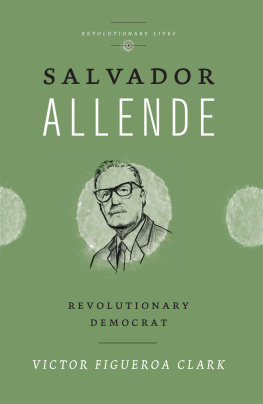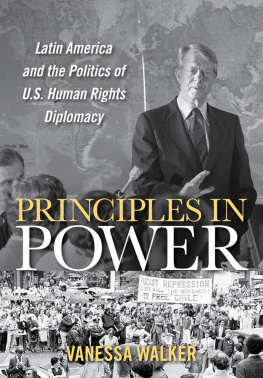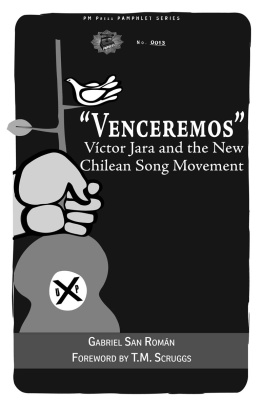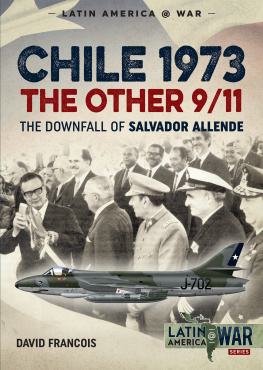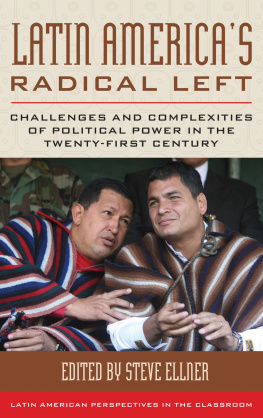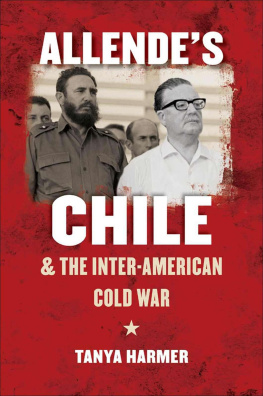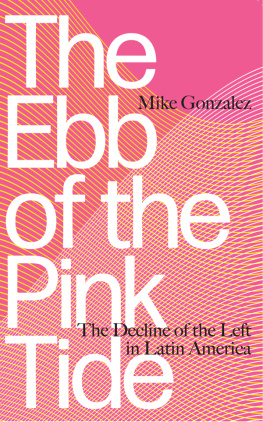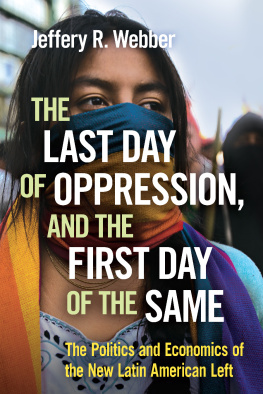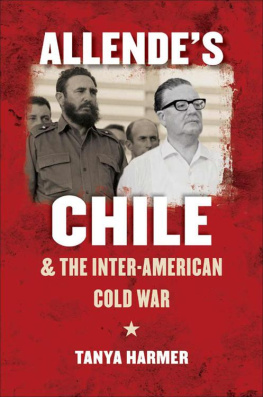Salvador Allende
Revolutionary Lives
Series Editors: Brian Doherty, Keele University; Sarah Irving, University of Edinburgh; Professor Paul Le Blanc, La Roche College, Pittsburgh
Revolutionary Lives is a series of short, critical biographies of radical figures from throughout history. The books are sympathetic but not sycophantic, and the intention is to present a balanced and, where necessary, critical evaluation of the individuals place in their political field, putting their actions and achievements in context and exploring issues raised by their lives, such as the use or rejection of violence, nationalism, or gender in political activism. While individuals are the subject of the books, their personal lives are dealt with lightly except insofar as they mesh with political concerns. The focus is on the contribution these revolutionaries made to history, an examination of how far they achieved their aims in improving the lives of the oppressed and exploited, and how they can continue to be an inspiration for many today.
Published titles:
Leila Khaled: Icon of Palestinian Liberation
Sarah Irving
Jean Paul Marat: Tribune of the French Revolution
Clifford D. Conner
Sylvia Pankhurst
Suffragette, Socialist and Scourge of Empire
Katherine Connelly
Gerrard Winstanley: The Diggers Life and Legacy
John Gurney
www.revolutionarylives.co.uk

First published 2013 by Pluto Press
345 Archway Road, London N6 5AA
www.plutobooks.com
Distributed in the United States of America exclusively by
Palgrave Macmillan, a division of St. Martins Press LLC,
175 Fifth Avenue, New York, NY 10010
Copyright Victor Figueroa Clark 2013
The right of Victor Figueroa Clark to be identified as the author of this work has been asserted by him in accordance with the Copyright, Designs and Patents Act 1988.
British Library Cataloguing in Publication Data
A catalogue record for this book is available from the British Library
ISBN 978 0 7453 3308 3 Hardback
ISBN 978 0 7453 3307 6 Paperback
ISBN 978 1 8496 4933 9 PDF eBook
ISBN 978 1 8496 4934 6 Kindle eBook
ISBN 978 1 8496 4935 3 EPUB eBook
Library of Congress Cataloging in Publication Data applied for
This book is printed on paper suitable for recycling and made from fully managed and sustained forest sources. Logging, pulping and manufacturing processes are expected to conform to the environmental standards of the country of origin.
10 9 8 7 6 5 4 3 2 1
Typeset from disk by Stanford DTP Services, Northampton, England
Simultaneously printed digitally by CPI Antony Rowe, Chippenham, UK and
Edwards Bros in the United States of America
To Salvador and all the children of exile,
to my parents, and above all to Marcela.
There are men who struggle for a day, and they are good.
There are others who struggle for a year, and they are better.
There are some who struggle many years, and they are better still.
But there are those who struggle all their lives, and these are the indispensible ones.
Bertolt Brecht
Acknowledgements
My thanks are due to the many people who helped me during the writing of this book, especially those family and friends who read early drafts of the manuscript and sent invaluable articles, interviews and other sources my way. Thanks also to David and Sarah at Pluto for their incisive comments, and to Carla and Boris at the Salvador Allende Foundation in Santiago for their help with the Foundations excellent archive of speeches, books, documents and audiovisual materials. Gracias also to Marcelo Navarrete for his invaluable research.
Finally, my warm thanks to Jorge Arrate, a Minister in Allendes government, a brilliant presidential candidate, and the man who really made me think about the meaning of Allendismo.
More information relating to Allendes life and the history of Chile can be found on the Revolutionary Democrat facebook page (www.facebook.com/SalvadorAllendeRevolutionaryDemocrat). Intended to accompany the book, the page contains extra information, excerpts from interviews, music, photographs, interview footage and other clips that will enrich your understanding of Allende the man, and of the Chilean left as a social and political movement for change.
All photographs courtesy of the Salvador Allende Foundation.
1
Introduction
Most politicians are known for what they did in life rather than for the way they died. In this, as in so many things, Salvador Allende was an exception. More people know about his overthrow than know about what his government did, or how he became president of Chile. Allendes life, like that of so many other revolutionaries, has been stripped of context and reduced to the symbolism of his last moments when, surrounded by the smoke and flames of a bombed and burning presidential palace, he took his own life.
Allendes last words to the Chilean people were probably the greatest words of farewell ever uttered by a political leader, and they had an immense impact on people around the world. Yet there is much more to the life of Salvador Allende than the last seven hours, or even the last three years of his life. These were the culmination of his political ambitions, and the triumph of his political methods, but they were also the last stage in a long process of struggle and organisation that had its roots in the beginning of the twentieth century at around the time Allende was born. Allendes death and the overthrow of his government are often told as a dramatic tragedy, but Allendes significance for Chile and for the wider world also lies within the story of his life, intertwined in history of the popular movement that he led.
Chiles Popular Unity government was of tremendous interest during the early 1970s. The successful implementation of a peaceful road happened to chime with the USSRs public recognition that a peaceful road to socialism was possible, and it was of great interest to a Western European and North American left that shared its political methods if not always its revolutionary goals. The Chilean process was also of great interest to the Third World and the countries of the Non-Aligned

Map of Chile
Allendes victory was just as important to his ideological opponents. For the Chilean elite it marked the failure of constitutional means to hold back social pressure for fundamental changes. For Christian Democrats it highlighted the abject failure of their revolution in liberty, the effort to make deep social changes within capitalism, and while aligned with the United States. Further afield it was also the death knell of Washingtons Alliance for Progress, a decade-old programme of economic and military measures designed to prevent revolution in the region and ostensibly promote development through free trade and political liberalism. By the late 1960s it was clear that while it had successfully prevented revolution, often through dictatorship and repression, it had failed to achieve anything else. Chile, with its relatively well-developed political system and strongly rooted political parties, was therefore an important example of a civilian US-aligned government. Allendes election thus hit an exposed nerve. The United States had been actively involved in preventing a Marxist government in Chile since the early 1960s, spending millions of dollars and penetrating Chilean politics at every level. This made it even worse that Salvador Allende, a self-proclaimed Marxist, had been elected and that to top it all one of the main pillars of his government was the regions largest and best-organised Communist Party. The United States had helped overthrow Latin American governments for much less.

